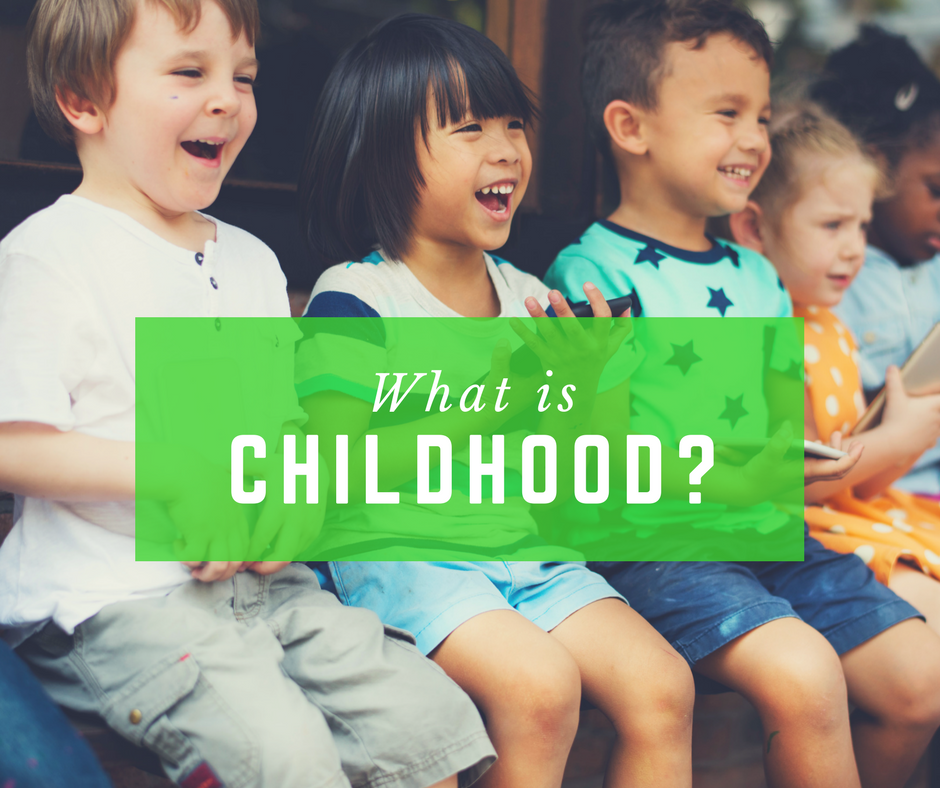When we are working with children, sometimes our work distracts us and we and don’t take time to think about what it really means to be a child. Being a child is something we all experience, but what is childhood?
Is it a period of time that begins at birth and magically ends when we turn eighteen? (That’d be 6,570 days to be precise)
Is it a developmental phase we must complete before passing into adulthood? (That’d be four phases if we’re following Piaget)
Is it a social construct that we create and enact as a society?
Or maybe it’s a social construction that shifts and changes from generation to generation?
Our beliefs about childhood are shaped by the history before us, the world around us, and our own experiences as children and with children. Our conceptions of childhood change as major scientific paradigms shift. For example, when our views about human behavior are dominated by behaviorist theories, then we tend to view children as passive agents who learn through series of actions and reactions.
Over the past one hundred years, our ideas about childhood have been impacted by shifts in social science theory. As with any theory, a particular theory might give us insights into certain aspects of a concept or phenomenon, but that same theoretical perspective will fail to explain other aspects. We have more diverse understandings of childhood when we consider the possibilities of multiple theoretical perspectives.
Have you ever taken time to articulate exactly what being a child means to you? If not, we invite you to consider how your ideas about childhood inform the work you do or want to do with kids.
If you’re interested in learning more about these theoretical shifts, check out this awesome slideshare presentation created by Daniel Bigler:

